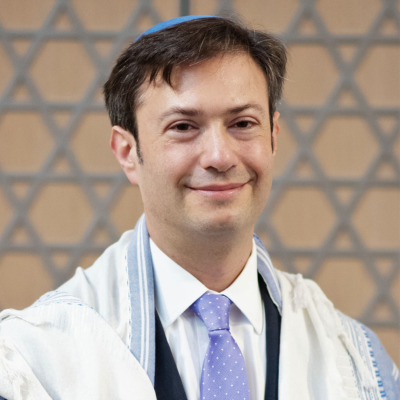How do you feel when someone accuses Israel of taking “all that was our father’s, and from that which was our father’s has built up all this wealth?” I feel a bit defensive.
Although it may sound current, this complaint (against Jacob, not yet renamed “Israel”) is straight from Genesis (31:1), and comes from Lavan’s children, i.e. Jacob’s cousins.
Sforno, the 16th century Italian commentator, notes Lavan’s children’s obvious jealousy. It’s not hard to understand their jealousy. Jacob takes what seem like his uncle Lavan’s worst sheep and quickly multiplies them, seemingly magically, into huge flocks.
Not only does Jacob now have so much, maybe more than Lavan — Jacob was able to do something that Lavan and his family couldn’t do. Intentionally or not, Jacob has made Lavan’s children feel dumb and incompetent at something they thought they were good at. It’s a perfect recipe for breeding resentment.
Find more commentaries on Vayetze.
It’s easy to write off complaints when they come from youth, notes Tzror Hamor, the 15th century commentary by Rabbi Abraham Saba, but Jacob starts paying attention when Lavan himself changes his disposition towards Jacob in the next verse.
Rabbi Zalman Sorotzkin (1880-1966, Ukraine and Israel), in his commentary “Oznayim LaTorah,” warns against ignoring youth:
“Every antisemitic movement begins among the nation’s youth, and they are the first to make the pogroms. First, Lavan’s children, even those who owe their lives and character to the Jews, spread propaganda that Jacob ‘has taken all that belonged to their father.’ The elders immediately forget how little they had before the Jews arrived, and that it was the Jews who enriched their country by their intelligence and industry and God’s blessing on them. They even forgot their own words, ‘God has blessed me on account of you’ (30:27), and their fawning before the Jews, begging them not to leave their country. All this is forgotten the moment their children begin inciting them.” (on Genesis 31:1)
Sorotzkin fled Europe for Israel on the eve of the Holocaust, and we can feel his (and our collective) scars aching in this comment. There was no appeasing Nazis; meaningful conversation and negotiation with Hamas seem equally futile.
But for Jacob in this situation, and maybe for us, too, in situations that feel similar, could there be some other paths towards peace?
Lavan’s children are unnamed. I wonder, even after 14 years, if Jacob knew their names. What if he and his children had tried to know Lavan’s children? It’s harder to hate people you know.
Jacob was conscious of the danger of appearing too rich and converted some of his flocks to servants, camels, and donkeys, suggests Abarbanel (15th century Spain/Portugal). But rather than hide his wealth, what if Jacob had shared it, or demystified and taught Lavan’s family his sheep-picking and mating techniques?
If it was God’s blessings that created Jacob’s wealth, it reminds me of structural privilege. How could Jacob have helped to bring Lavan and Lavan’s children into that covenant, into that blessing?
Maybe some of this would have helped. Maybe not.
Find more commentaries on Israel/Palestine.
How do we know when to dig into working across difference, and when to give up and leave?
We are facing questions about what partners Jewish organizations need to cut ties with, based on responses to the war in Israel and Gaza. What friends and acquaintances, what interfaith colleagues, are we finished with because they reacted in the wrong ways?
Jacob had an escape hatch: He could leave Haran and return home to the land God had promised Abraham. He didn’t have to engage. If we want to stay at home here in America, we need to stay engaged with our neighbors, unless and until we can no longer do so safely.
There’s one more reading of these accusations against Jacob that explains something I’m feeling now. I find myself recoiling from people who can speak without ambivalence; I don’t trust anyone who is too sure of themselves and their positions right now (its own kind of dogmatism, I know), because certainty sounds like spin, not truth.
Lavan’s children weren’t complaining about possessions or animals, suggests the Kli Yakar (16th century, Poland and Prague). Rather, Jacob learned from Lavan how to be a master of deceit and eventually surpassed him. Lavan’s children fume that it’s with Lavan’s own tricks that Jacob built his wealth.
Jacob and Lavan cannot speak honestly; they can only spin, can only tell their monochrome truths.
May we have the courage to engage across difference.
May we find partners who warrant and share that courage, and may we merit their courage.
And may we be certain of the incompleteness of our truth, yet dedicated to seeking a truth that is more whole.
Noah Arnow is the rabbi of Kol Rinah, a Conservative synagogue in St. Louis, MO.

